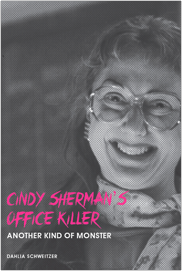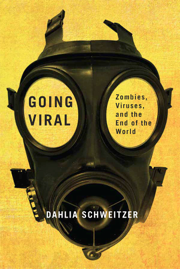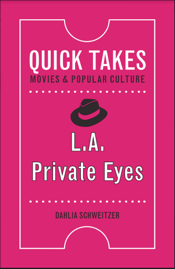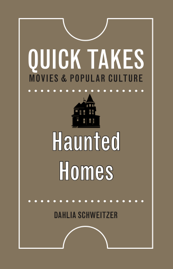
About Dahlia
DAHLIA SCHWEITZER is a pop culture critic, writer, and professor. Described by Vogue as “sexy, rebellious, and cool,” Schweitzer writes about film, television, music, gender, identity, and everything in between. She studied at Wesleyan University, lived and worked in New York City and Berlin, and completed her MA and PhD at the Art Center College of Design and UCLA. She is currently chair of the Film and Media department at the Fashion Institute of Technology in New York City.
In addition to her books, Dahlia has essays in publications including Cinema Journal, Journal of Popular Film and Television, Hyperallergic, Jump Cut, Quarterly Review of Film and Video, and The Journal of Popular Culture. She has also released several albums of electronic music, including Plastique and Original Pickup.

Professor
As a professor of film and media studies, Dahlia exposes her students to a variety of theoretical approaches and cinematic techniques, asking them to approach both with analytical inquisitiveness. Her aim is to pass her own curiosity on to her students, encouraging them to think across their classes and experiences to create intellectual connections between course materials and the world in which they live. She strives to remind her students that the loudest voice is not necessarily correct, and in so doing, helps them find their own.

Media Critic
Declared “one of the world’s leading analysts of popular culture” by renowned author Toby Miller, Dahlia writes about film, television, music, gender, identity, and everything in between. Her work can be found across mainstream, academic, and emergent channels in both long and short form. Repeatedly drawn to popular culture, Dahlia loves to analyze and unpack cultural artifacts in order to explore how they reflect social and historical issues, as well as looking at how they reinforce or interrogate common cultural assumptions.

Author
Dahlia has written numerous books exploring aspects of film and television. Regardless of the topic—serial killers, private detectives, or even zombies—all of her writing engages directly with questions of self versus other, private versus public space, examining depictions of gender, identity, and race. She traces how these depictions evolve and examines what they mean about our changing world. In her latest project, Dahlia explores the ways haunted homes have become a venue for dramatizing anxieties about family, gender, race, and economic collapse.
Blog
Introducing the Queen (of Hearts)
Three days after I submitted Another Kind of Monster to the publisher for copyediting, I began my first “proper” novel. This book, more than anything I have ever written, holds a special place in my heart. Since Lovergirl is told in diary format, Queen of Hearts feels like my first traditional novel. Queen of Hearts was also the first novel I wrote knowing, from the beginning, that it would be a novel. And that scared the fuck out of me. I outlined, sure. I forced myself to write five pages...
Another Kind of Monster is Born
Even though I quit writing fiction, I didn’t stop writing entirely. Instead, I switched back to the short form, only this time to essays and articles rather than short stories. I wrote about art, film, celebrity, sexuality, and identity--topics that didn't really fit into my fiction, anyway. And then, much like with Lovergirl, one of those essays became a book. I had studied Cindy Sherman and her photographs at length as an undergraduate, so it seemed logical to focus on her film Office Killer...
On Me, Writing, and Lovergirl
Lovergirl was the first book I ever wrote. When I first started it, writing a book felt like a daunting task, and it was probably for the best that the project was originally limited to an essay…but then that essay simply got longer and longer, broader and broader in scope. If I had thought from the beginning that I was going to write a book, I would have been too daunted to get to page two. My mother once said to me that she envied the ease with which I wrote. The ease? What ease? Writing is...




